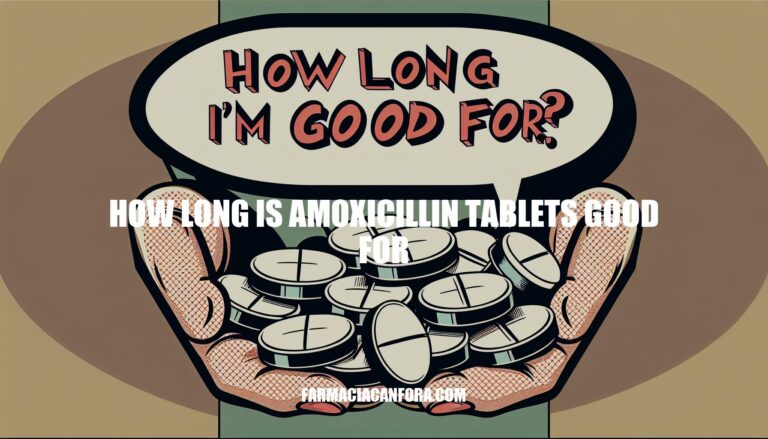


Understanding the shelf life of medications, like amoxicillin-good-for-after-expiration-date”>amoxicillin tablets, is crucial for ensuring their effectiveness and safety. Typically, amoxicillin tablets are good for about 2 to 3 years from the date of manufacture. Proper storage in a cool, dry place can help maintain their potency. Using expired medications can lead to reduced efficacy and potential health risks, making it important to always check expiration dates and consult with a healthcare professional if in doubt.
Amoxicillin tablets typically have a shelf life of 2 to 3 years from the date of manufacture. During this period, they are considered effective and safe to use, provided they are stored as recommended—usually in a light- and moisture-resistant container at room temperature. After this time frame, the potency of the medication may decrease, and it is generally not recommended to use them beyond their expiration date.
Here are the factors that influence the shelf life of amoxicillin tablets:
Storage Conditions:
Packaging:
Expiration Date:
Proper storage and packaging are crucial to ensure the medication remains effective until its expiration date.
Manufacturers typically set the shelf life of amoxicillin tablets and capsules at 2 to 3 years from the date of manufacture. This period is determined through stability testing, which assesses how long the drug maintains its potency and safety under specified conditions. The expiration date is legally required and indicates the last day the manufacturer guarantees the medication’s full effectiveness. Proper storage in a light- and moisture-resistant container at room temperature is crucial to maintaining the drug’s stability.
Here are the key recommendations for storing amoxicillin tablets:
Following these guidelines will help maintain the effectiveness of your amoxicillin tablets.
Using amoxicillin tablets past their expiration date can lead to several risks and consequences:
Reduced Efficacy: The antibiotic may lose its potency over time, making it less effective at treating infections. This can result in the infection not being properly treated.
Antibiotic Resistance: Using a sub-potent antibiotic can contribute to the development of antibiotic-resistant bacteria. This makes future infections harder to treat.
Chemical Changes: Over time, the chemical composition of the medication can change, potentially leading to harmful byproducts.
Unpredictable Safety: There’s no guarantee that expired medications are safe to use, as they haven’t been tested for stability beyond their expiration date.
It’s always best to consult a healthcare professional before taking any expired medication.
Amoxicillin tablets typically have a shelf life of 2 to 3 years from the date of manufacture, provided they are stored properly in a cool, dry place.
It is crucial to check expiration dates and consult with a healthcare professional if in doubt. Using expired medications can lead to reduced efficacy, antibiotic resistance, chemical changes, and unpredictable safety risks.
To maintain their effectiveness, store amoxicillin tablets at room temperature (68°F-77°F), away from moisture and direct sunlight, and keep them in original packaging until use.